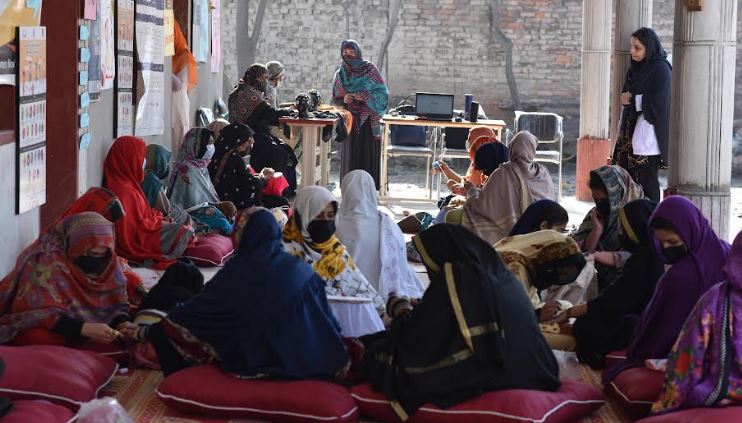Islamabad, MAR 20 /DNA/ – Cases of domestic violence across Khyber Pakhtunkhwa saw a rise in the aftermath of the pandemic-triggered lockdowns. This posed serious implications for women’s wellbeing, their sexual and reproductive health, their mental health, and their ability to participate and lead in the recovery of our societies and economy. The situation was graver in communities with high rates of illiteracy and multi-dimensional poverty.” These views were shared by Tayyaba Aurangzeb – Deputy Director Operations/Country Director (Acting/Interim) in a press statement issued by the International Rescue Committee (IRC) at the conclusion of its Reproductive Health initiative supportedby Global Affairs Canada and implemented by Pakistan Village Development Program (PVDP).
Simultaneous to the outbreak of COVID-19,the increased incidence of violence against women and girls globally, especially domestic violence led the United Nations to declare it as a “shadow pandemic.” Speaking about IRC’s contribution to alleviating this grim situation she added, “We launchedan intervention to improve the health and safety of women and girls, with a focus on those with reduced access to Reproductive Health (RH), and Gender-Based Violence (GBV) response services during the pandemic.”
During the course of the intervention, IRC delivered an essential and life-saving integrated package of GBV and RH interventions to women, adolescent girls, transgender people and men, in Swat and Peshawar Districts of Khyber Pakhtunkhwa province. These districts were selected owing to a high need and minimal availability of SRH and GBV services as part of the humanitarian response.
IRC in partnership with the provincial government, ensured delivery of health services including prenatal, natal, infant care, family planning, contraceptives, and nutrionalcouncelling. In addition, IRC established 10 safe spaces to deliver psychological councelling, awareness and vocational training to those most in need in the target districts of Swat and Peshawar.
Capacity-building exercises were also conducted so that women in the targeted districts had information, power, andresources to decide in case they wished to seek Sexual and Reproductive Health and Gender-Based Violence response services. Efforts were also made to ensure that women and girls at an individual and community level had the demonstrative capacity to respond when faced with a crisis situation.
“International Rescue Committee remains hopeful that this intervention will go a long way in creating an enabling environment to effectively respond to issues of Reproductive Health as well as Gender-Based Violence in Khyber Pakhtunkhwa,” read the statement.

















